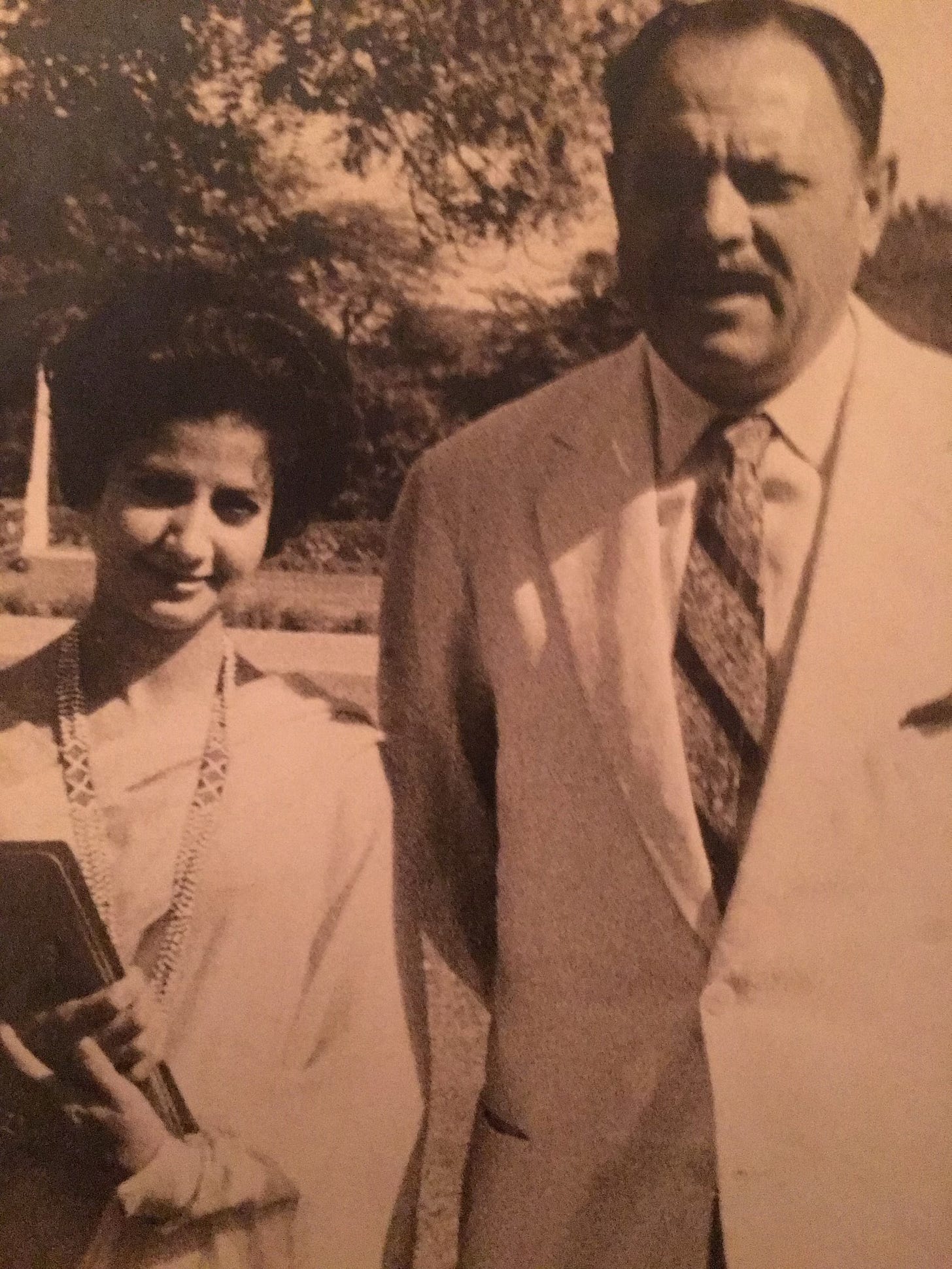Paid subscribers get two extra issues a month. One of those is ET Ask Home, inspired by Vanity Fair’s Proust Questionnaire (now featuring new questions for 2024). This month’s guest is journalist Akbar Shahid Ahmed.
Hi! Thanks for doing this. Please put down how you'd like to be identified here:
I'm Akbar Shahid Ahmed, the senior diplomatic correspondent for HuffPost and more importantly, an Emily Tamkin fan who nearly six years ago plucked up the courage to suggest we meet up for drinks (via Twitter DM, inevitably). Now we do Jewish holidays, scene parties & regular catch-up venting sessions together for which I'm endlessly grateful. I am, of course, also a big ET Ask Home fan.
Is there a particular photo you'd like me to use? It doesn't have to be of you! It can be of, like, a dog.
This is a photo of my grandmother, Zaib-un-Nissa Hamidullah, and Ayub Khan, the military dictator who was Pakistan's president from 1958 to 1969. My grandmother — my Bibi June — lived with my family until she died when I was 8, and she's always been my role model. She's the reason I became a journalist. I think about her all the time but this picture especially resonates with me right now because as a foreign policy reporter in DC for a decade, I'm often in close proximity to and in regular contact with people in positions of power, and I've been especially aggressive in covering them in recent months as I've tracked the latest crisis in Israel-Palestine. I see my role, and the role of journalists broadly, as fundamentally being about holding power to account. My grandmother shared that view, which often made figures like President Khan very angry but ultimately deeply respectful of her; this is one of the many photographs of them together, in this instance when she was the only journalist he allowed to cover his family during a personal retreat. She modeled what I see as the role of the fourth estate: she covered Khan and other Pakistani leaders diligently, guided by her values and the primary understanding that they were all figures whose role is to advance the public good. Of course, powerful people rarely like being told they're wrong, and it's even more rare for them to heed smart advice from the press. Khan repeatedly rejected my grandmother's public entreaties to stop cracking down on students, ethnic minorities and others who chafed under his regime. Eventually, his rule became so untenable that he had no choice but to listen to her final editorial about his rule: a call for him to resign.
What is a piece of writing (book, play, poem, etc) that you think of often?
The Waste Land by T.S. Eliot.
What is the best piece of advice you ever received?
Keep reading with a 7-day free trial
Subscribe to ET Write Home to keep reading this post and get 7 days of free access to the full post archives.





